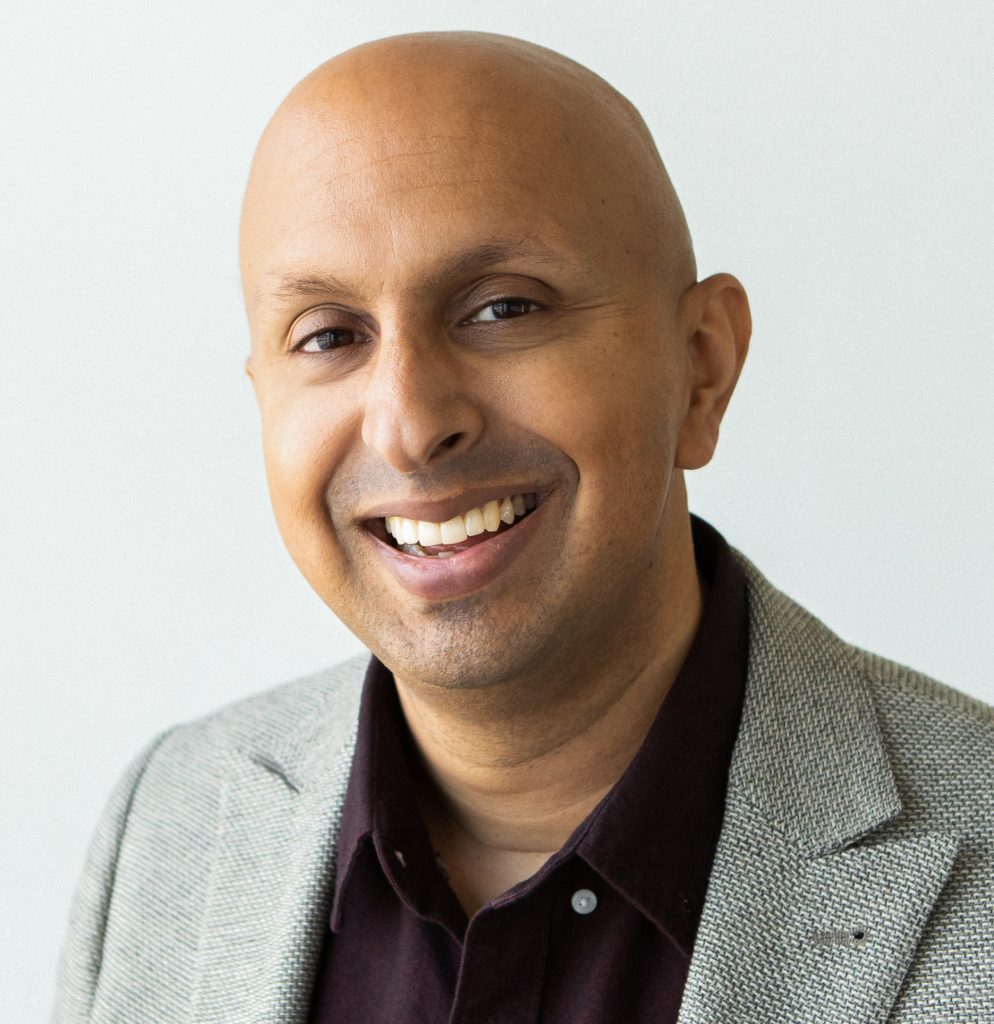
The Endocrine Society’s 2023 Laureate Richard E. Weitzman Outstanding Early Career Investigator Award recipient, Rana K. Gupta, PhD, talks to Endocrine News about his research, his parents’ influence, his advice to young investigators, and why his “happy place” is at the bench.
The research lab became his “happy place” as a young undergraduate. Fast forward several years, and Rana K. Gupta, PhD, has been named the recipient of the 2023 Laureate Outstanding Early Career Investigator Award and still finds the same joy in the lab.
Gupta joined the faculty at Duke University in 2022 as a professor in the Department of Medicine and Division of Endocrinology and Metabolism. He began his independent research career at the University of Texas Southwestern in 2012, after completing postdoctoral training in the laboratory of Harvard’s Bruce Spiegelman, PhD. He is recognized as one of the preeminent investigators in the field of adipose biology, especially as it relates to pathogenesis of cardiometabolic diseases and the regulation of metabolic homeostasis.
Named in honor of the late Dr. Richard E. Weitzman, the Laureate award recognizes an exceptionally promising young clinical or basic investigator. Endocrine News asked Gupta about his early motivations to pursue a career in research and the long-term goals for his laboratory discoveries.
Endocrine News: What did winning the Early Investigator Award, named after Dr. Richard Weitzman, mean for you?
Rana K. Gupta: I am truly honored and humbled by receiving this award named after Dr. Weitzman. In a short period of time, Dr. Weitzman built an outstanding research program that was internationally recognized. By all accounts, he was a critical thinker and rigorous scientist as well as an outstanding member of the scientific and medical community.
In college, I realized that I was meant to work in a laboratory. The research lab I volunteered in as an undergraduate was my “happy place.” I loved performing experiments, seeing new data emerge, and witnessing exciting discoveries being made all around me. The idea of discovering something that perhaps no one else in the world knew was always truly exciting.
I have been studying endocrine cells and attending the Endocrine Society annual meetings since my time as a graduate student at the University of Pennsylvania. I remember watching many receive this award on stage. Many of the past recipients are now scientific heroes of mine, including past and current mentors. I am truly honored and somewhat amazed that I am now amongst this group.
I view this award in two ways. First, as a recognition of the hard work that my laboratory colleagues and I put in over the years. Second, I see this as a call to action. This award makes me even more motivated to make advances in our field and train future scientists.
EN: At what point in your educational span did you know scientific research was your career path?
Gupta: I was exposed to science at a young age. My father, now retired, was a chemical engineer. My late mother was a laboratory analyst at an environmental testing company in New Jersey until the time of her passing. During my high school years, I realized that I, too, was destined for a career in science. We had a wonderful AP biology teacher in high school who made science fun. In college, I realized that I was meant to work in a laboratory. The research lab I volunteered in as an undergraduate was my “happy place.” I loved performing experiments, seeing new data emerge, and witnessing exciting discoveries being made all around me. The idea of discovering something that perhaps no one else in the world knew was always truly exciting.
EN: Your research has shaped how we understand adipose tissue development and function. What are the ultimate research goals of your laboratory, say in the next five or 10 years?
Gupta: The most amazing thing to me about adipose tissue is the degree to which it can change in size, appearance, and function, as it adapts to changing environmental and physiological conditions. This ability to change, or it’s “plasticity,” is critical to maintain health in adulthood and is what is often lost in the setting of disease.
Taking on too many unrelated problems too early can lead to diminishing returns. I found that by drilling deeper into one problem at the beginning allowed us to move our research program slowly and organically in new directions.
Our group’s short-term goals are to unravel the natural mechanisms that build and maintain functional adipose tissue and identify how disruption of these mechanisms can lead to metabolic disease. In the long run, we hope that we will be able to identify factors that predict or influence susceptibility to metabolic disease and perhaps even devise therapeutic strategies to treat obesity and associated disorders.
EN: What’s one thing you would tell other future young investigators on how to excel?
Gupta: The best advice I can offer is the advice I independently received from both my mentor and my program officer at the National Institutes of Health. The advice to new investigators is to identify one problem or question that you feel is important and then remain focused on drilling deep into the question. Taking on too many unrelated problems too early can lead to diminishing returns. I found that by drilling deeper into one problem at the beginning allowed us to move our research program slowly and organically in new directions.
— Fauntleroy Shaw is a freelance writer based in Carmel, Ind. She is a regular contributor to Endocrine News.

